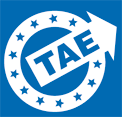End the "Happiness Legislation": TAE Warns of Growing Overregulation at the EU Level
Europe is at a political turning point. The EU is increasingly addressing perceived societal risks not with individual responsibility and market-based mechanisms, but with preventive regulation. Protection is gradually becoming preemptive state decision-making. Two current legislative proposals – the Digital Fairness Act and the so-called CSA Regulation (Chat Control) – exemplify how this development is increasingly penetrating the everyday lives of citizens and businesses.
The Digital Fairness Act (https://www.digital-fairness-act.com/) is intended to prevent the exploitation of individuals' "vulnerabilities." In practice, however, this principle leads to the automated suppression of digital advertising for certain groups of people. Imagine someone searching for a florist, eulogist, or service provider after a bereavement. At precisely this moment, the platform can classify this person as "emotionally vulnerable" and hide the ad—not of its own volition, but because it is obligated to minimize the risk due to legal liability rules. The ad disappears not because the business owner is not allowed to offer it, but because the platform can no longer display it as a precautionary measure. This does not regulate abuse, but rather the very access between provider and customer—with consequences for visibility, competition, and market mechanisms.
Even more serious is the CSA regulation https://www.bfdi.bund.de/DE/Fachthemen/Inhalte/Telemedien/CSA_Verordnung.html , better known as "Chat Control." Its official goal—protecting children from sexual abuse—is undisputedly legitimate. However, the technology used for this purpose, so-called client-side scanning, means that images and files are already scanned on the device before they are transmitted in encrypted form. This creates a permanent screening infrastructure for all users, regardless of suspicion. IT security experts warn that such an architecture not only undermines encryption but also creates a significant risk of abuse—because what begins as child protection can later be technically expanded or misused. A protective measure thus becomes the possibility of structural control.
These two projects are exemplary of a political trend: The state is increasingly pushing the boundaries between precaution and intervention. Citizens are no longer viewed primarily as responsible individuals, but rather as potentially vulnerable and objects to be regulated. Entrepreneurs, in turn, are under general suspicion of creating risks that must be preemptively countered. In this way, the understanding of freedom, market order, and the logic of state responsibility are changing – without this development being openly discussed politically.
To maintain the balance between protection and freedom, clear guidelines in legislation are now needed:
- Legislative impact assessment:
No law should be passed without a transparent, rigorous, and comprehensive impact assessment for citizens and businesses. - Clear target of 25% bureaucracy reduction:New regulations must not grow in parallel with existing promises of relief. Economic recovery requires real, not just rhetorical, relief.
According to EUR-Lex, from January to October 2025 alone, 1,835 EU legal acts have been adopted! The Commission bears the lion's share of responsibility for these!
Source: https://eur-lex.europa.eu/statistics/2025/legislative-acts-statistics.html?locale=de
- A clear commitment to the free market economy:
The state is not an entrepreneur. Preventive intervention in market decisions must not become the new political norm.
- More EU where necessary – less EU where possible:
The EU should be strong where it creates real added value – and step back where it replaces private or economic decisions. The principle of subsidiarity must apply!
The design of the Digital Fairness Act and the CSA Regulation is not yet complete. Now is the right time for policy corrections before protection becomes permanent regulation and precaution becomes creeping disempowerment and a control mania.
Brussels/Munich, October 23, 2025
Rudolf G. Maier, Press Spokesperson



